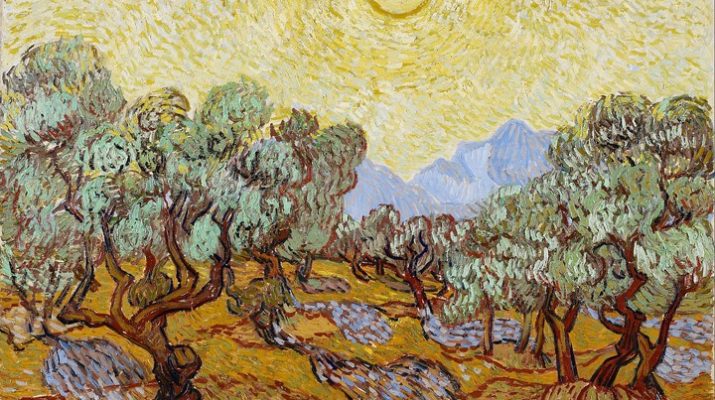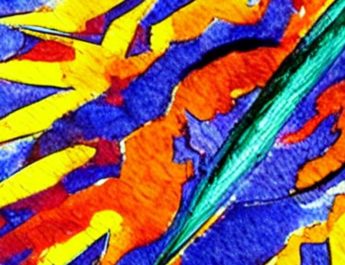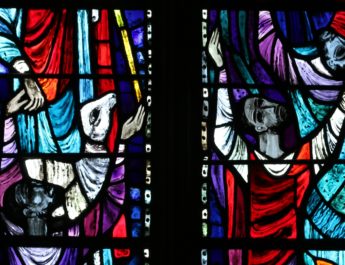Psalm 1
Ordinary B43
1 HappyA are thoseB
who do not followC the adviceD of the wicked,E
A “happy” = esher. From ashar (to go straight, lead, guide; to be level and so to be right, blessed, honest, happy). This is happy or blessedness.
B “those” = ish. Perhaps from enosh (human, humankind, mortal); from anash (to be weak, sick, or frail). This is man, husband, another, or humankind.
C “follow” = halak. This is go, come, walk. It is walk literally and figuratively and includes people and animals. It can be used figuratively for one’s moral life – how we walk according to God’s way or against it. It can also refer to the walk of life as in the course one’s life takes, the choices we make, etc.
D “advice” = etsah. From yaats (to counsel, advise, determine). This is advice, purpose, plan, prudence, or counselor.
E “wicked” = rasha. This is morally wrong so it refers to someone who is actively bad as wicked, criminal, an evil person, offender, condemned, or ungodly.
or take the pathF that sinnersG tread,
or sitH in the seatI of scoffers;J
F “path” = derek. From darak (to tread, march, to walk. Can also mean affixing a string to a box since one needs to step on it to bend it in the process; so also an archer). This is a road as a thing that is walked on. Can be used figuratively for the path that one’s life takes or how one chooses to live one’s life.
G “sinners” = chatta. 19x in NT. From chata (to miss, sin, carry blame, lack). This is sinful or sinner. It is a criminal or someone who is seen as guilty.
H “sit” = yashab. Related to “seat” in v1. This is to sit and so to remain and so to dwell. It is sitting for any reason – as a judge, in order to ambush, or just sitting quietly. Causatively, this can mean settling or marrying. This can also mean continue, endure, or establish.
I “seat” = moshab. From yashab (see note H above). This is seat, dwelling, assembly, settlement, dwellers, or population.
J “scoffers” = luts. Perhaps from the same as lits (to scorm, mock, or deride; an envoy or interpreter). Properly, this means “to make mouths at” or scoff, mock. It can also be ambassador or interpreter in reference to pronouncing another language.
2 but their delightK is in the lawL of the Lord,M
and on his law they meditateN day and night.
K “delight” = chephets. From chaphets (properly, inclined towards or bending to; figuratively, to desire, delight in, or be pleased with). This is a delight, care, or pleasure. It is what you desire or what is acceptable. It can also be used concretely for a precious thing or something that one is thinking about.
L “law” = torah. From yarah (to throw, shoot, be stunned; to flow as water so figuratively to instruct or teach). This is law, instruction, teaching, or statute. It can also refer to the first five books of the Bible – the Torah.
M “Lord” = YHVH. From havah (to be, become) or hayah (to come to pass, become, be). This is the name of the God of Israel, the self-existent and eternal one, the tetragrammaton. This pronunciation has been lost to time so “Lord” is generally used in its place.
N “meditate” = hagah. This is to speak, declare, make a sound, imagine, or mutter. It could be a murmur, moan, or growl, whether from delight or anger. It can also mean to study, ponder, or meditate.
3 They are like treesO
plantedP by streamsQ of water,
which yield their fruitR in its season,
and their leavesS do not wither.T
In all that they do, they prosper.U
O “trees” = ets. Perhaps from atsah (to shut, fasten, firm up, to close one’s eyes). This is tree or other things related to trees like wood, sticks, or stalks. It can also refer to wood products like a plank or staff or gallows. Additionally, this can refer to a carpenter.
P “planted” = shathal. 10x in NT. This is to plant or transplant.
Q “streams” = peleg. 10x in NT. This is a channel, canal, or streamlet. It can be a small stream of water used to irrigate plants.
R “fruit” = peri. From parah (to bear fruit, grow, be fruitful, increase; bearing fruit in a literal or figurative sense). This is fruit or reward.
S “leaves” = aleh. 18x in NT. From alah (to go up, climb, to be high; to arise in a literal or figurative sense). This is leaf, branch, or foliage.
T “wither” = nabel. This is to fall away, faint, wither, languish, sink. Figuratively, it can mean being senseless, foolish, or wicked. Further, it can be to despise, disgrace, or fall to nothing to be seen with contempt.
U “prosper” = tsalach. This is pushing forward in a literal or figurative sense. So it could be to break out, to come mightily, to rush, to go over. Figuratively, it could mean to prosper.
4 The wicked are not so,
but are like chaffV that the windW drives away.
5 Therefore the wicked will not standX in the judgment,Y
nor sinners in the congregationZ of the righteous;AA
V “chaff” = mots. 8x in NT. From muts (to press or squeeze; figuratively to oppress, extortioner). This is chaff as something that was pressed or threshed loose. It can also be an extortioner.
W “wind” = ruach. This is breath, wind, air, cool, spirit. This is wind, which resembles the breath and so this can be used figuratively for life itself or being frail/mortal/impermanent. It can refer to the air of the sky or the spirit.
X “stand” = qum. To arise, stand, accomplish, establish, abide. This is rising as in rising against, getting up after being sick or asleep, arising from one state to another, becoming powerful, or rising for action. It can also be standing in a figurative sense.
Y “judgment” = mishpat. From shaphat (to judge, defend, pronounce judgment, condemn, govern). This is a verdict or formal sentence whether from humans or from God. It includes the act of judging as well as the place that judging takes place, the suit itself, and the penalty. Abstractly, this is justice, which includes the rights of the participants.
Z “congregation” = edah. From yaad (to appoint, assemble or gather selves, agree) OR from ed (witness, testimony, recorder); from ud (to admonish, repeat, duplicate, testify, restore, record, relieve). This is a congregation, assembly, or company. It could be a family, crowd, or fixture.
AA “righteous” = tsaddiq. From the same as tsedeq (rightness, righteousness, just cause, vindication; that which is right in a natural, moral, or legal sense; abstractly equity; figuratively prosperity). This is just, innocent, righteous, righteous one, or lawful.
6 for the LordBB watchesCC over the way of the righteous,
but the way of the wicked will perish.DD
BB “Lord” = YHVH. From havah (to be, become) or hayah (to come to pass, become, be). This is the name of the God of Israel, the self-existent and eternal one, the tetragrammaton. This pronunciation has been lost to time so “Lord” is generally used in its place.
CC “watches” = yada. This is to know, acknowledge, advise, answer, be aware, be acquainted with. Properly, this is to figure something out by seeing. It includes ideas of observation, recognition, and care about something. It can be used causatively for instruction, designation, and punishment.
DD “perish” = abad. To wander off, lose self. This implies to perish, destroy, die, vanish, or be broken or corrupt.
Image Credit: “Olive Trees” by Vincent van Gogh, 1889.




